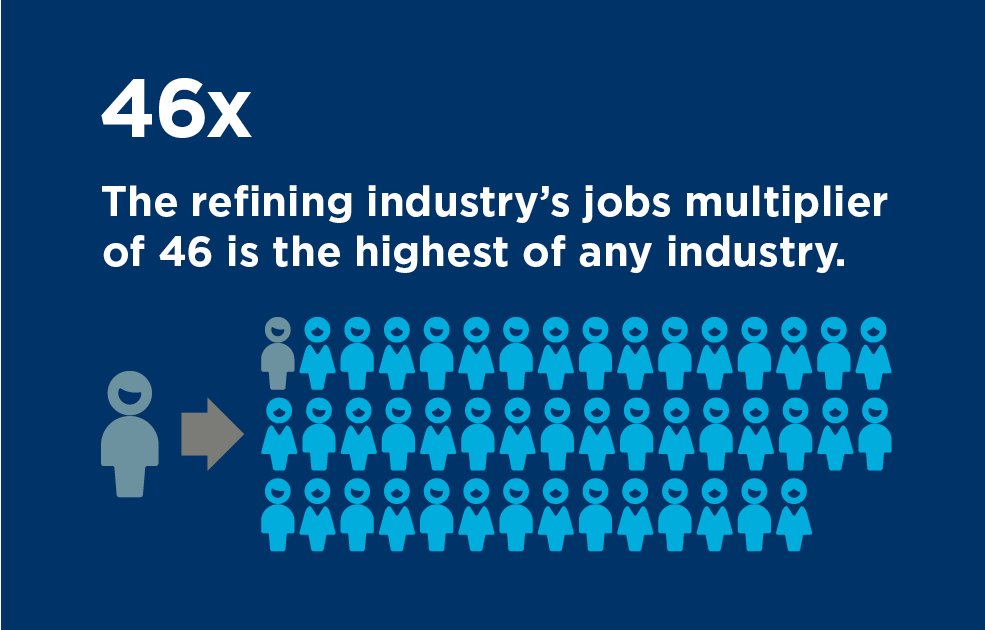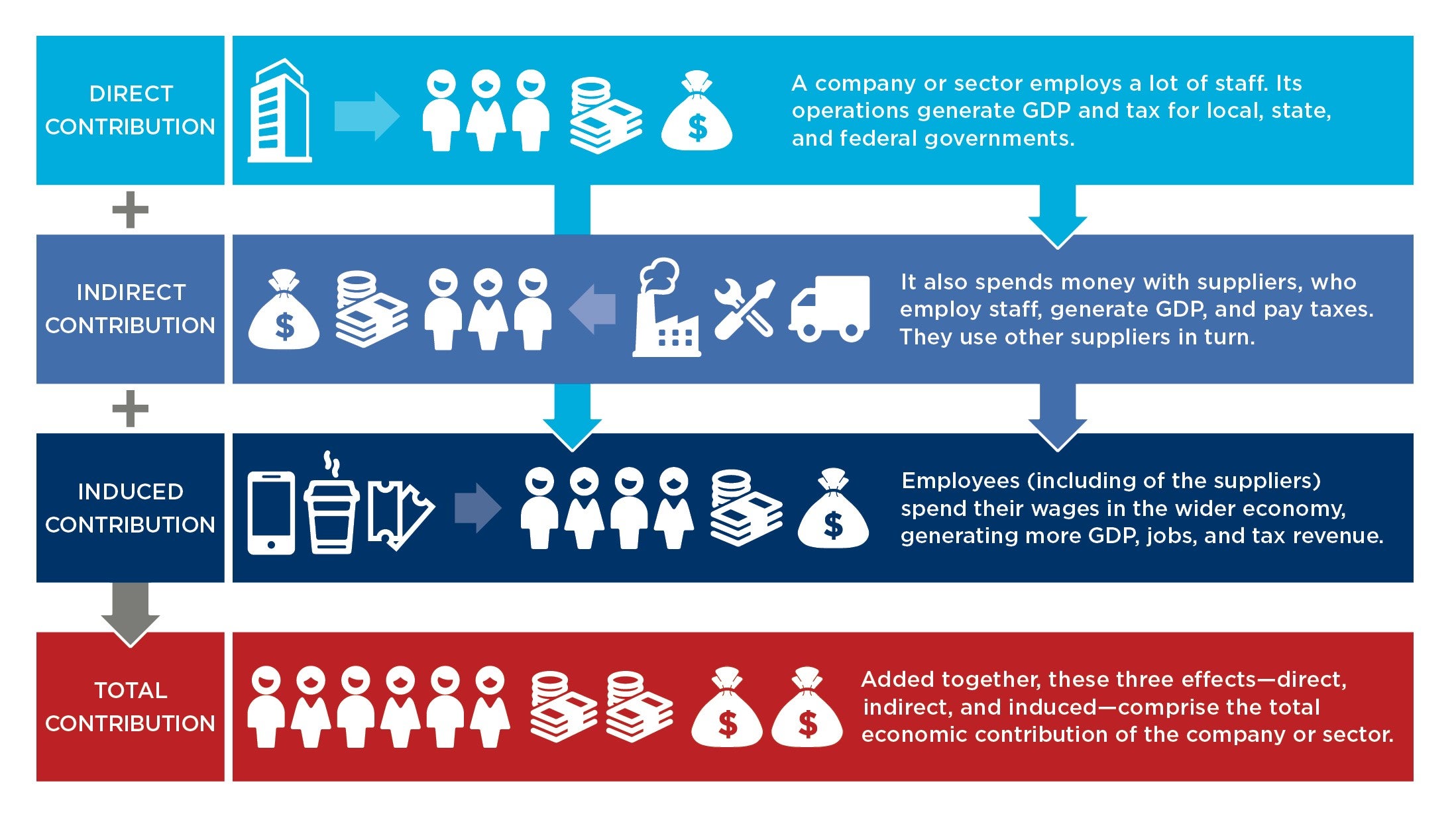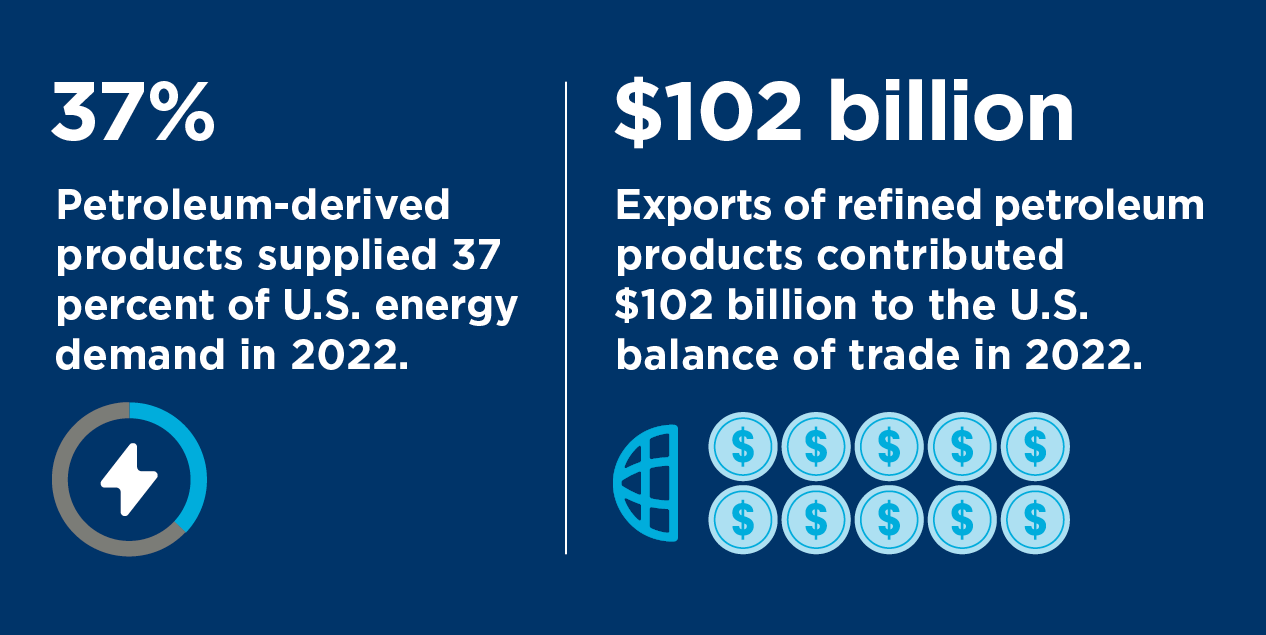The U.S. refining industry has a widespread economic impact on our nation. It supports millions of American jobs and pumps billions of dollars into the economy, as documented by the new AFPM report Economic Contributions of U.S. Petroleum Refineries. Report highlights, based on the latest full year of data available through IMPLAN (2022), are featured below:
Employment
The U.S. refining industry, in 2022, employed nearly 3 million people. This number includes:
- 64,500 direct employees (people who work on the ground at our facilities)
- Over 1.5 million indirect employees (those who support refinery operations, including those at company headquarters, on- and off-site contractors and suppliers)
- More than 1.3 million induced workers (individuals who work at the businesses where our industry’s direct and indirect workers spend their money, including restaurants, grocery stores, dry cleaners and auto repair shops)
The refining industry’s job multiplier is 46, which means that for each direct job at a petroleum refinery, 45 other jobs are supported throughout the economy. This is the highest of any U.S. industry.

Worker compensation
Refining industry careers are high-paying and family-supporting, covering a range of skills and education levels. Average annual compensation for the 64,500 direct employees of the petroleum refining industry was $334,000. Compensation includes wages and the value of benefits like health insurance, retirement savings plans and others. Compensation for direct refinery employees is among the highest of any U.S. industry and comes in well above the U.S. average of $97,000.
Contributions to the economy
The U.S. refining industry and the three million-plus jobs it supports contribute a combined $688 billion to the to the U.S. economy.

Federal, state and local taxes
U.S. refinery operations and employment contributed $162 billion dollars of tax revenue in 2022. This total includes $77 billion in federal taxes, $47 billion in state taxes and $38 billion in local taxes, collected from corporate income taxes paid by the refineries and payroll and income taxes associated with all the direct, indirect and induced jobs refineries support. This tax revenue helped to fund local emergency services, schools, infrastructure and public health at the federal, state and local levels.
Meeting U.S. energy needs and dominating global trade

Refined products are essential for meeting U.S. energy demand. In 2022, 37% of U.S. energy demand — the largest share — was met with petroleum-derived products, including gasoline, diesel, jet fuel and other products.
U.S. refineries are among the most competitive in the world, producing more fuel and refined products here at home than we consume. In 2022, our net petroleum product exports totaled 60 billion gallons, representing $102 billion in net trade income for the United States.
Learn more about the integral role the refining industry plays in the U.S. economy by reading the report.
The American Fuel & Petrochemical Manufacturers (AFPM) is the leading trade association representing the makers of the fuels that keep us moving, the petrochemicals that are the essential building blocks for modern life, and the midstream companies that get our feedstocks and products where they need to go. We make the products that make life better, safer and more sustainable — we make progress.


